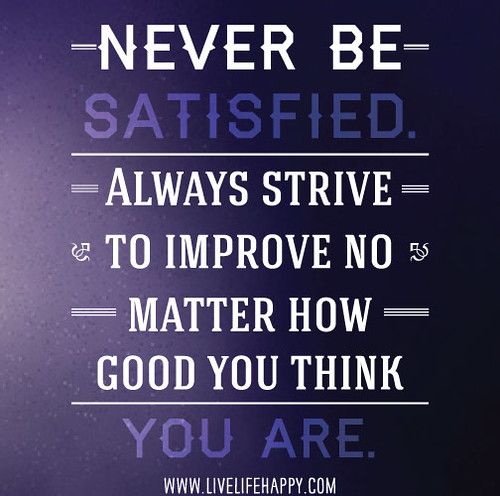 |
| https://c1.staticflickr.com/9/8500/8427125809_36c1efcbc5.jpg |
The ISTE Coaching Academy really has been so worth my time!
I just finished working through the fourth course, entitled:"Coaching for Active, Engaging, Technology-Rich learning".
See my previous notes & reflections at the following links: Course 1 Reflections; Course 2 Reflections, Course 3 Reflections
This course focused on the ISTE Standards for Coaches 2.a,b,c,d,f,g, which state:
- a. Coach teachers in and model design and implementation of technology-enhanced learning experiences addressing content standards and student technology standards
- b. Coach teachers in and model design and implementation of technology-enhanced learning experiences using a variety of research-based, learner-centered instructional strategies and assessment tools to address the diverse needs and interests of all students
- c. Coach teachers in and model engagement of students in local and global interdisciplinary units in which technology helps students assume professional roles,research real-world problems, collaborate with others, and produce products that are meaningful and useful to a wide audience
- d. Coach teachers in and model design and implementation of technology-enhanced learning experiences emphasizing creativity, higher-order thinking skills and processes,and mental habits of mind (e.g., critical thinking, meta-cognition, and self-regulation)
- f. Coach teachers in and model incorporation of research-based best practices in instructional design when planning technology-enhanced learning experiences
- g. Coach teachers in and model effective use of technology tools and resources to continuously assess student learning and technology literacy by applying a rich variety of formative and summative assessments aligned with content and student technology standards
The focus of this course was on working through a structured and effective model for co-planning a lesson that enhances learning by integrating technology. One of the biggest takeaways from this course was in re-developing my "Coaching Journal Template", which is the Google Doc that my fellows and I work through as we are going through each coaching cycle. I was able to add some more prompts that will help us to focus on the content and skill objectives first, and then finding ways that technology can enhance those objectives. There are prompts for our planning and discussion together as well as for my fellows to reflect and journal at the pre-brief, lesson implementation, and debrief stages. While I know it's far from perfect (and especially since I haven't used it with any fellows yet, I'm sure it will need to be tweaked again), but I feel like it provides a good structure for our conversations and keeps us focused in the right areas. I am definitely a structured person and value organization and logical flow. However, I also understand the need for flexibility and a non-"cookie-cutter" approach to coaching. I think the template I have put together is open-ended enough to allow for that flexibility while not compromising our focus and purpose of enhancing learning with technology (not simply supplanting a current practice with tech because it's tech). If you are interested in seeing my template-in-progress, please let me know and I will share a view-only copy of the doc with you.
I am very lucky in the position that I hold in that I have a small group of teachers that have signed up to be coached and there are expectations laid out at the beginning of the application process. Now that I have been a part of this program for a semester, I feel like I understand it so much better than I did back in August, and already have ideas for modifications for next year. I am so blessed that this is a longer-term assignment and that I have three years to work with the staff. Growth takes time, both in mindset shifting and in tangible technological skills & comfort level.
Lesson Improvement Process:
The rest of this course worked through several key facets of lesson improvement. My reflection will focus on the parts that stuck out the most to me along with resources I found useful.
The overall process in planning for lesson improvement is as follows:
Design Learning Task (focus on scenarios & essential questions) -->
Define Standards (both content & skill) -->
Directions for Learning Activity -->
Integrating Technology (with a purpose!) -->
Assessment (including rubrics) -->
Resources
Part of "Design Learning Task" is looking for ways to make the product "real" by including a scenario that will peak the students' interest and defining an audience that the product is aimed towards. Another key consideration is in developing essential questions. I have been highly impressed with my school's English departments' use of essential questions and themes in organizing their curriculum. I remember reading "To Kill a Mockingbird" in 9th grade, with the focus being on reading the book and understanding the story. Now, "To Kill a Mockingbird" is one text used in the Unit focused on "Honor, Empathy, and Justice". Literature is brought into context and is tied in with relevant non-fiction text. Oh, how I wish my high school English classes were like this!
Grant Wiggins' has an excellent article on Essential Questions that you can read here. The course also linked to an article on creating essential questions here. A few key highlights that stuck out to me:
- Essential questions can be of many types. Ones that are:
- important questions that recur throughout one's life. Help us to focus on the fact that education is really about learning how to learn.
- key inquiries within a discipline. Ones that are "alive" in the field.
- what is needed for learning core content. Help students to make sense of complicated ideas.
- Essential questions are not questions that are simply essential to the teacher who wants his/her students to know an important answer. We must separate questions of this type from those which are "essential to anyone as a thinking person and inquiring student for making meaning of facts in this subject" (Wiggins, 2007).
- When writing essential questions, consider... (summarized / modified from Wiggins' article linked above)
- Does it cause genuine inquiry into big ideas or core content?
- Does it provoke deep thought or lively discussion?
- Does it lead to new understanding or even more questions?
- Does it require students to consider alternatives and weigh evidence?
- Does it require that students support their ideas and justify their answers?
- Does it stimulate continual rethinking of the big ideas and assumptions from previous lessons?
- Does it make connections to prior learning?
- Does it make connections to personal experiences?
- Does it create opportunities to transfer to other situations / subjects?
While this article was very helpful in defining and stimulating thinking around essential questions, it still lacked much of what I have always struggled with: what do essential questions look like in a high school math class? So, I did a little Google-ing and came across some resources. These are going to be very useful in the unit development we are working through in our district currently.
I really focused on the 21st century skill portion of this section. I feel as though the CCSS are fairly easy to "align" with what we are teaching (because a lot of times it's done for us). However, when we are considering instructional strategies and student products, we need to really think through the 21st century skills we want our students practicing and modeling during the task. I added a portion to my Coaching Journal Template to identify a 21st century skills focus for each coaching cycle (which may be the same one throughout the semester). For example, a teacher may want to really focus on student collaboration; thus, the activities and lessons we design will use that goal as a guide for instructing students in the task and selecting technology to support and enhance that goal.
Once you have the task and the standards, it's time to develop clear and detailed "Directions for Learning Activity". We must consider what activities students need to participate in to address the task we posed at the beginning. It is important to clearly explain the product / performance that students will create. Then, we must outline the detailed directions students will follow in order to complete the task, including necessary scaffolding tools.
Thinking through a task in this much detail is where I think the coaching and collaboration are huge. Two brains are better than one! I may be able to think of something my fellow hadn't considered, or my fellow may bring something up I would have brushed off as not important. The scaffolding is also of huge importance, especially in regards to differentiation. Do all students need the same scaffolds? How will you support your ELs but challenge your GATE students? Without a structured time to think through this with a coach, these are the areas I think far too easily fall through the cracks in teacher lesson planning - at least it did a lot for me.
When we look at ways for "Integrating Technology", we want to use tools that allow students to communicate, collaborate, gather / organize information, analyze / synthesize information, and creatively share what they have learned. These are nothing new, but like I mentioned before, I'm a organized / love-my-lists type of person. Having these written down (and linked in my Coaching Journal Template) helps me to stay focused on the purpose and goals of integrating technology. "Why do you want to use __________?" "Because I haven't used it yet and it seems fun and cool". Um... Not so much. What is the purpose of using the technology? How is it enhancing learning?
"Assessment" refers to both the formative and summative assessments that allow us to measure student progress towards the learning objectives. The course material stated that "Assessment strategies need to be continuous and ongoing rather than relying on an assessment that occurs after the project is completed." This is huge! I really feel like this is a mindset shift for so many teachers. There is so much value in formative assessment, but only when it is actually used to drive and modify instruction. What's the purpose of giving your students a quiz if they don't get the results for several days and it goes in the gradebook but doesn't change what happens in class? What's the point of doing an opener/warm-up or exit ticket but never actually reading through it for student responses? Assessment must drive instruction. It must be continuous (remember, it can be formal or informal) throughout the entire learning cycle. Assessments take time, but they result in greater student learning and improved student understanding of the concepts.
This brings me back to my Masters' program when we read about Assessment OF learning vs. Assesssment FOR learning. Yes, we have to, at some point, have an assessment OF student learning. However, the assessments along the way should all be "for" learning - to help students understand what they do and don't "get", and to support them in growing towards mastering the learning objectives.
When I work with teachers during staff development, they often tell me they don't have time to assess students along the way. They fear sacrificing coverage and insist they must move on quickly. Yet in the rush to cover more, students are actually learning less. Without time to reflect on and interact meaningfully with new information, students are unlikely to retain much of what is "covered" in their classrooms...On balance, the time they take from a lesson is well worth the information you gather and the retention students gain.
Rubrics were also emphasized as a tool to use for both formative and summative assessments. Some benefits of rubrics are:
- students know what is expected of them in language they can understand
- students can see the specific skills they are expected to gain in their learning
- students are able to do some self-assessment and reflecting on their learning
- teachers are able to monitor student learning, especially over time
- provides consistency in evaluating student work
**Rubistar Rubric Creator** I heard of this several years ago but never used it... I would highly suggest checking it out if you use rubrics in your classes.
Lastly, we must list out our "Resources" - this may include curriculum resources such as the textbook, but also information resources (websites), a bibliography of all of the resources we used in designing the lesson / task as well as any copyright and attribution needed (gotta model good digital citizenship for our students!), and technology resources and instructions that students might need in order to use them.
Whew! With that, Course 4 is complete. While every course has been so valuable in my growth as a coach, this one definitely had the biggest tangible affect thus far in terms of really developing and structuring the coaching process through the modifications of my Coaching Journal Template. I am excited to begin using the process with my teachers. As I mentioned before, the more focused prompts and considerations that I've embedded throughout the journal will help us to think more deeply about what we are doing and make sure that we aren't just using technology as an add-on.
See all of my ISTE Coaching Academy Course Reflections here:






